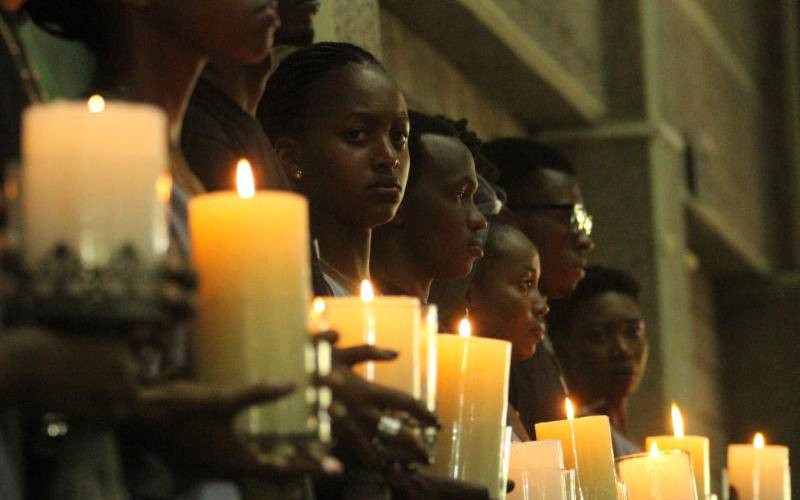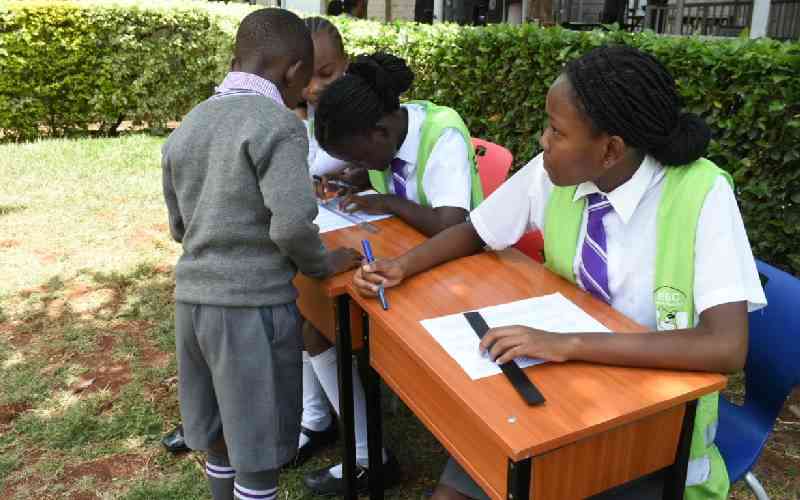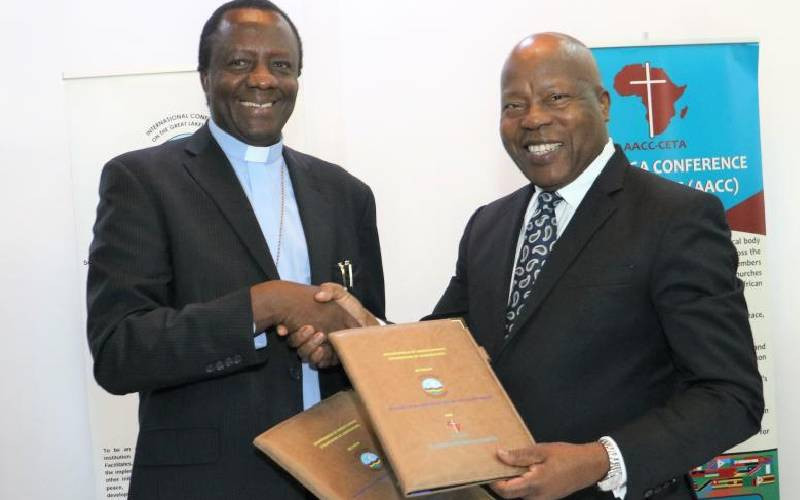October 1979. We were only two weeks old as First Year students at the University of Nairobi. Perhaps it would be more accurate to say at the university, rather than the University of Nairobi, as we said those days. For, it was the only university in the country. You were either here or nowhere.
With the exception of the usual odd casualty, virtually my entire class from Cardinal Otunga High, Mosocho, had migrated to the university. This is to say nothing of the ‘A’ Level class ahead of ours. Going to university was a homecoming in disguise. We took to the place with the familiarity and agility of the duck to water.
Then there was the exciting world of new people. You had only heard of some of these. David Rubadiri, Micere Mugo, Katama Mkangi. Prof Mbithi, Okoth Ogendo, Prof G Were, Dr Nyang’ Nyong’o. There was the excitement of John Ruganda’s free travelling theatre. Oluoch Obura, Polycarp Shitakha, Hawi Odingo, Kivutha Kibwana and Nazi Mwambura had given us the joy of the world to come in our high school years.
There were the nyam nyams at the student Christian house they called Ufungamano and the sampling of assorted waters and libations at the Student Centre. The reputation of Prof Joseph Donders’ orientation lectures in Taifa Hall preceded him.
There was so much to be excited about that enough students did not recover from this, to refocus on what had really brought them here. But the most exciting of all things was yet to come – the opportunity for a Kamukunji and a student demo.
The one year-old Moi government gave it to us on a silver platter. It was an election year. They barred George Anyona, newly released from detention without trial, from contesting in the elections. One newspaper headline read, “Anyona and ex-KPU barred.”
Kanu, the only political party in the country, would not clear Anyona, Jaramogi Oginga Odinga and others who had belonged to the defunct Kenya People’s Union, for the election. The outrage and excitement of brass youth hit a crescendo.
The Kamukunji took place in the women’s main hall of residence, christened The Box. The addresses by the student leaders were bold, strident and eloquent. They swooned us. The historian of ancient antiquity, Plutarch, has told us that when Cicero spoke, the people would turn to each other and say, “Well spoken. Great speech.” But when Demosthenes spoke, the people got marching. Demosthenes had spoken. We got marching. We spilled into the streets of Nairobi, with pulsating urgency, chanting, singing, dancing.
Outside the old Nation House on Tom Mboya Street, one student leader supervised the capsizing of a Kenya Charity Sweepstake kiosk into a makeshift platform. Another one urged the student chairman, Rumba Kinuthia, on to the platform. “Coward!” he shouted, “Climb! Address the media!” A third one thrust a megaphone into the chairman’s hands, “Here! Speak!”
Amidst fast clicks and flashes of press cameras, Rumba Kinuthia’s baritone resonated, “Comrades of the press, we are not only asking, we are demanding that Comrades Anyona, Jaramogi and the other comrades must contest in the forthcoming elections. We are also demanding that Comrade Ngugi wa Thiong’o is reinstated in his job as lecturer at the university, forthwith!”
Of course, we lost the battle. They closed the university the following day, to allow us “enjoy an early Christmas” and to vote in elections that were still six weeks away. Never mind that we had only been at the university for ten days. The student leaders were expelled. Apart from Kinuthia, the other two who come to mind were Mukhisa Kituyi and Gerald Otieno Kajwang’. This was just the beginning of what would become our regular lifestyle at the university. We lost a whole calendar year, the apogee of which was the fracas of a coup attempt in August 1982.
Thirty-five years later, Kajwang’ has made his final bow. He has gone home, to Heaven, to be with God. His entire life, during these three and a half decades, has been a struggle for a free, fair and just society. It is not difficult to understand why he was at once the chief chorister and choirmaster in the “Mapambano, mapambano!” choir. The struggle was his life.
He fought against institutional atrophy and failure. In 1979, he was fighting against the failure of democracy and of the political party. Kanu discontinued his studies. Ironically, he would mature to serve in the Kanu Cabinet for ten months in 2002, under the stewardship of the same people who had messed up with his studies in 1979. The jury to say the last thing on this must remain out there for now.
Have we defeated the malaise that we protested against as brass youth in 1979? Quite often, you will hear the political class talk of things like “the second liberation.” They possibly mean the struggle for multiparty democracy – the effort to remove politics from the Kanu stranglehold. But did anything really change? Such are the questions Kenya must ask as one more of the stalwarts of those heady days goes to sleep. Since I first met him in 1979, the late Otieno Kajwang has sung the song of struggle – for 35 years. He certainly started earlier. What have we achieved over this period?
Once long ago, Kenyan youth gave away the joys of being young in a university environment to push for democratic space. Three and half decades later, what are the gains? We have a new Constitution. We have devolved government. Presidents now retire. There is a cocktail of a few other gains. But is there so much more work to be done? Do you often get the impression that multiparty democracy has morphed into multi tribal autocracy in the guise of democracy? Each big tribe must now have its own party, with its own tribal leader. In ODM, URP and TNA the political language is the same. Only the tribe in which it is expressed differs.
Stay informed. Subscribe to our newsletter
The essential idiom is Kanu-speak, or “Fuata Nyayo.” “Fuata Nyayo” is the same, regardless that it is said in Kiswahili to a national audience, or in Kikuyu to a TNA audience or in Dholuo to a Luo audience. The gremlin we protested against in our youth only went into an amoebic reproduction.
Kanu has reproduced itself into ODM, TNA, URP, Wiper and all that. They threaten you with exclusion, if you do not worship the party idol.
The sun has set on Gerald Otieno Kajwang’, a hero of the struggle who nonetheless missed the chance to tell Raila Odinga that he was taking ODM the Kanu way. Now there is no difference between Kanu and ODM. Yet we all make our mistakes. In the end, Kajwang’ must remain a hero.
For the price of telling the king that he is naked can be mind-boggling. Yet, in our adulthood, we must find a quiet moment to reflect deeply about the things we said to Rumba Kinuthia in the streets of Nairobi in 1979.
One reality remains, overwhelming us. Thirty-five years on, we are far from the Promised Land. Please don’t go to sleep yet – ‘bado mapambano!’ Rest in eternal peace, Gerald Otieno Kajwang’. In your time, you gave your best.
 The Standard Group Plc is a
multi-media organization with investments in media platforms spanning newspaper
print operations, television, radio broadcasting, digital and online services. The
Standard Group is recognized as a leading multi-media house in Kenya with a key
influence in matters of national and international interest.
The Standard Group Plc is a
multi-media organization with investments in media platforms spanning newspaper
print operations, television, radio broadcasting, digital and online services. The
Standard Group is recognized as a leading multi-media house in Kenya with a key
influence in matters of national and international interest.
 The Standard Group Plc is a
multi-media organization with investments in media platforms spanning newspaper
print operations, television, radio broadcasting, digital and online services. The
Standard Group is recognized as a leading multi-media house in Kenya with a key
influence in matters of national and international interest.
The Standard Group Plc is a
multi-media organization with investments in media platforms spanning newspaper
print operations, television, radio broadcasting, digital and online services. The
Standard Group is recognized as a leading multi-media house in Kenya with a key
influence in matters of national and international interest.








